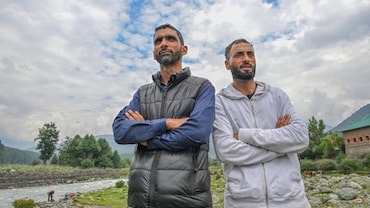- HOME
- /
- True Stories
- /
- Heroes
- /
A Lone Warrior Fights The Good Fight Against Caste-Based Oppression And Discrimination
Degree Prasad Chouhan is a brave defender of the marginalized in the troubled state of Chhattisgarh
 Photograph by Vinay Sharma
Photograph by Vinay Sharma
“To be victorious is colloquially called receiving a ‘degree’. When I was born, it was a moment of great joy for my family. My grandmother was the first to call me Degree. It stuck, somehow, and that’s the story behind my name!” laughs Degree Prasad Chouhan, 39, among the few remaining human-rights defenders of Dalit, Bahujan and Adivasi rights in the state of Chhattisgarh.
Based in Raigarh, and working for marginalized communities who are often denied their fundamental rights, Chouhan has been targeted both by state and non-state actors. In August last year, a letter, purportedly written by Sudha Bharadwaj, national secretary of the People’s Union for Civil Liberties, Chhattisgarh, surfaced, naming, among others, “comrade Degree Prasad Chouhan, who was sent into the interiors by me, has returned … completing the … operation.” This, to him, is a clear attempt to link him to the incident of violence between Dalits and upper-caste Peshawas in Bhima Koregaon in 2018. Bharadwaj, through her lawyer, has rubbished these allegations since.
While investigating a murder and possible rape of a local woman back in 2013, the police detained Chouhan in a railway station late at night on the allegation that he possessed ‘Naxal’ literature. “Of course, they did not find anything and no case could be made,” says Chouhan. “In 2015, the local police alleged that I was sympathetic to the Naxals. I was neither arrested, nor did the police register a formal complaint. I was simply asked to stop my work.”
Chouhan’s struggle against caste injustice began way back in 2002, at age 22. There was a religious function in his village, Bardoli, where 13 surrounding villages were involved. “Everyone worked together to make it a success, but during the celebrations, the upper castes refused to pray alongside Dalits.” That’s when it hit him: No matter how hard he studied or worked, he would never be good enough. “That was the day the new me was born,” he says.
The Dalits in his village were always segregated—in their mohalla, schools or playgrounds. “Teachers would not touch us with their bare hands while punishing us; they used wooden ru-lers to strike us,” he says, recalling the life of an untouchable. But it wasn’t until the grown-ups showed him the place of a Dalit in society that it hit him. “I was crushed. Then angered.”
Acceptance, as the final stage of that grief, never came however. “Something needed to be done for my Dalit brothers and sisters, who were suffering or dying.” Caste-based violence continues unabated in a state like Chhattisgarh, where land-grabbing by mining companies, in cahoots with the local administration, is rampant. Tribal women and children are regularly trafficked; rapes, murders, fraud, coercion, intimidation, brutality and ostracization; lack of equal opportunities—all of it adds up to simmering discontent. The marginalized often find themselves caught between an oppressive state and the outlawed Naxals. “Where do we go; why should we go?” he asks.
Trained as a lawyer, Chouhan was denied enrollment into Chhattisgarh’s bar council. Though he doesn’t practise yet, he has helped file over 200 cases against various injustices, and is one of the founders of the Adivasi Dalit Mazdoor Kisan Sangharsh.
Chouhan is currently trying to establish that the dispossession of Dalits and tribals from their land without their consent is a crime under the Scheduled Castes and Scheduled Tribes (Prevention of Atrocities) Act. “The use of the POA Act has seldom been used to hold corporations accountable for human rights abuses. It genuinely offers a fresh opportunity,” he says. Simultaneously, he has been working on issues of human trafficking and bonded labour in Chhattisgarh, Odisha and Jharkhand. In the face of every effort to silence him, Chouhan continues on his path relentlessly and fearlessly. His grandmother would be very proud today that she called him Degree.






